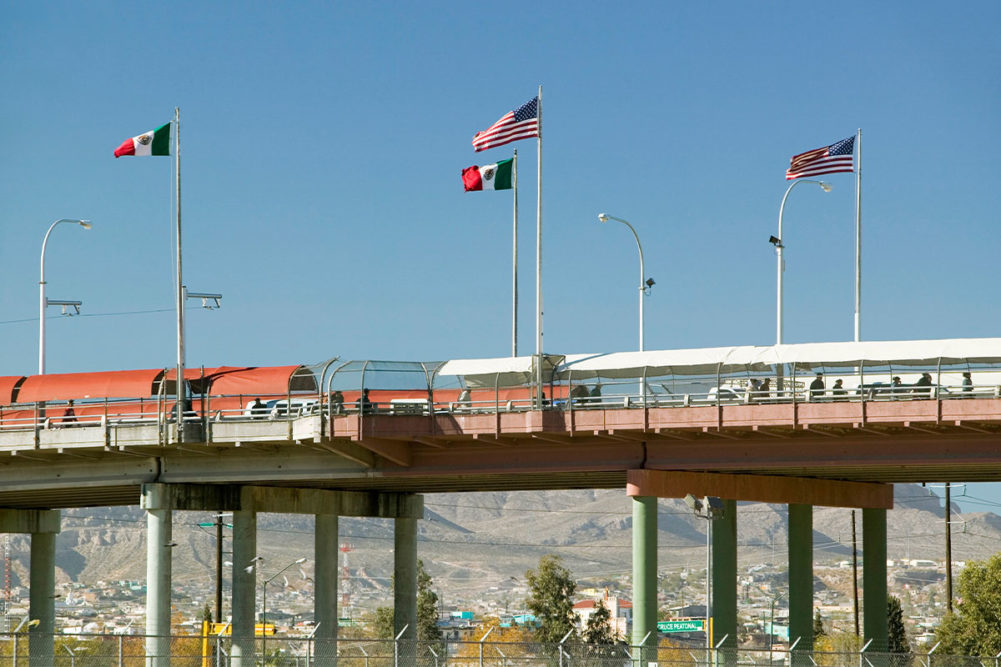WASHINGTON -- The mounting immigration crisis at the southern US border triggered the temporary closing of key international trading crossing points and an outcry from US business groups, including major agricultural organizations.
Crossings at Eagle Pass and El Paso in Texas were closed for four days beginning Dec. 18, but the US Customs and Border Protection (CBP) on Dec. 22 said international railway crossing bridges in Eagle Pass and El Paso were resuming operations. Vehicular processing on Eagle Pass International Bridge 1 remained suspended.
The closings had begun “rippling back into the US supply chain and having negative impacts on the US economy,” according to a large coalition of US agricultural groups, including the North American Millers’ Association and the National Grain and Feed Association.
In a Dec. 20 letter to Alejandro Mayorkas, Secretary of Homeland Security, the group noted two thirds of all US agriculture exports to Mexico are hauled by rail, with $28.5 billion in sales in 2022. The market is the second largest for US agricultural exports.
“Each day the crossings are closed we estimate almost 1 million bushels of grain exports are potentially lost, along with export potential for many other agriculture products,” the group said. “Each additional day of closures results in rail carriers having to idle trains or reroute them in illogical ways to tray to serve customers, all of which adds friction within the supply chain.”
The group pointed out the exports represent human food and animal feed, and the suspension of the shipments raises the risk of food insecurity and food price inflation in Mexico.
“It is hard to understand how CBP would allow this to happen to the food chain of our neighbor and one of our closest trading partners,” the group said. “It is our firm belief that if food insecurity in Mexico increases, the migrant crisis could actually worsen with more attempts to cross the US border.”
The CBP blamed the closing on a surge of immigrants, many of whom it said were “misled and victimized by transnational criminal organization.”
“After observing a recent shift in the trends of smuggling organizations moving migrants through Mexico, CBP took additional actions to surge personnel and address this concerning development, including in partnership with Mexican authorities,” the CBP said. “The Office of Field Operations has redirected personnel and resources in order to support the U.S. Border Patrol as well as perform its critical functions including the security and facilitation of lawful trade and travel.”
The agricultural group expressed sympathy for the challenges CBP faces as it pursues its dual mission of safeguarding the borders and overseeing international trade.
“While we are sympathetic to the humanitarian needs on the US/Mexico border, the interconnectedness of the North American supply chain means the closure of rail crossings causes backups on the rail system as far north as the US/Canada border and hurts our economy,” the letter said.
The group cited a Union Pacific Railway estimate that $200 million in economic activity is lost every day the rail crossings are closed.
CBP said that in addition to Eagle Pass, crossings in San Diego; Lukeville, Ariz.; and Nogales, Ariz., remain closed.
Among the 40-plus groups that signed onto the letter to Mr. Mayorkas were the American Soybean Association, the Consumer Brands Association, the Corn Refiners Association, the National Association of Wheat Growers, the National Corn Growers Association, the North American Export Grain Association, the Renewable Fuels Association, US Wheat Associates and USA Rice.




